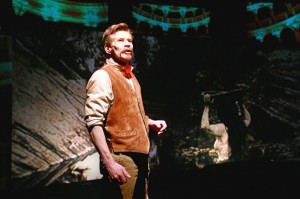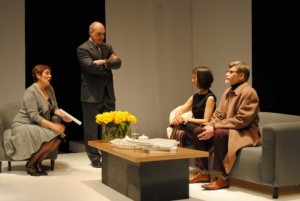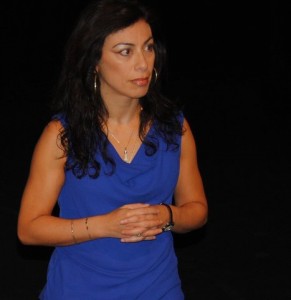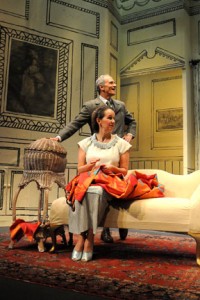Ottawa Fringe 2013. Nhar Moves (super bad moves)
Nhar Moves (Super Bad Moves), written by Richard Harrington, Chris Kauffman and Emily Windover and performed by Chris Kauggman is a lovely, touching show about a depressed warehouse worker who, happens upon a fish he makes his friend. When the fish disappears suddenly one night, he goes on a quest to find him, in the process realizing he must find the strength to pursue a passion that will make him happy regardless of others. It’s a sweet, silent show with beautifully whimsical music and storybook drawings on a projector to set the scene. Kauffman acts with his whole body, and especially with his eyes. He manages to make us feel and root for his character. A mark of his success was that he had the children at the show enthralled, following and laughing at his every move, not an easy feat when your show is basically a mime. If anything, I wish his show had been entirely silent. The couple of times Kauffman broke out into song frankly ruined the magic and the mood. The show is strong and funny enough without it. Having said that, everyone seemed to be having a great time at the show, young and old alike.
Nhar Moves (Super Bad Moves)
Harrington & Kauffman
By Chris Kauffman, Emily Windover & Richard Harrington






